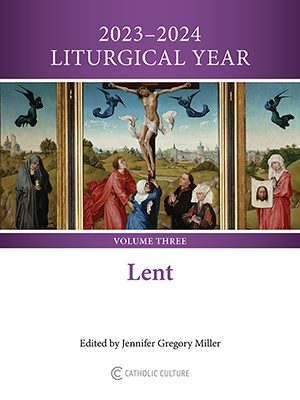Fathers of the Church
Epistle XLIII: to the Bishops
by Gregory Nazianzen in 370 | translated by Charles Gordon Browne, M.A., James Edward Swallow, M.A
How sweet and kind you are, and how full of love. You have invited me to the Metropolis, because, as I imagine, you are going to take some counsel about a Bishop. So much I learn from you, though you have not told me either that I am to be present, or why, or when, but have merely announced to me suddenly that you were setting out, as though resolved not to respect me, and as not desirous that I should share your counsels, but rather putting a hindrance in the way of my coming, that you may not meet me even against my will. This is your way of action, and I will put up with the insult, but I will set before you my view and how I feel. Various people will put forward various candidates, each according to his own inclinations and interests, as is usually the case at such times. But I cannot prefer anyone, for my conscience would not allow it, to my dear son and fellow priest Basil. For whom of all my acquaintance do I find more approved in his life, or more powerful in his word, or more furnished altogether with the beauty of virtue? But if you allege weak health against him, I reply that we are choosing not an athlete but a teacher. And at the same time is seen in this case the power of Him that strengthens and supports the weak, if such they be. If you accept this vote I will come and take part, either in spirit or in body. But if you are marching to a foregone conclusion, and faction is to overrule justice, I shall rejoice to have been overlooked. The work must be yours; but pray for me.
Taken from "The Early Church Fathers and Other Works" originally published by Wm. B. Eerdmans Pub. Co. in English in Edinburgh, Scotland, beginning in 1867. (LNPF II/VII, Schaff and Wace). The digital version is by The Electronic Bible Society, P.O. Box 701356, Dallas, TX 75370, 214-407-WORD.







